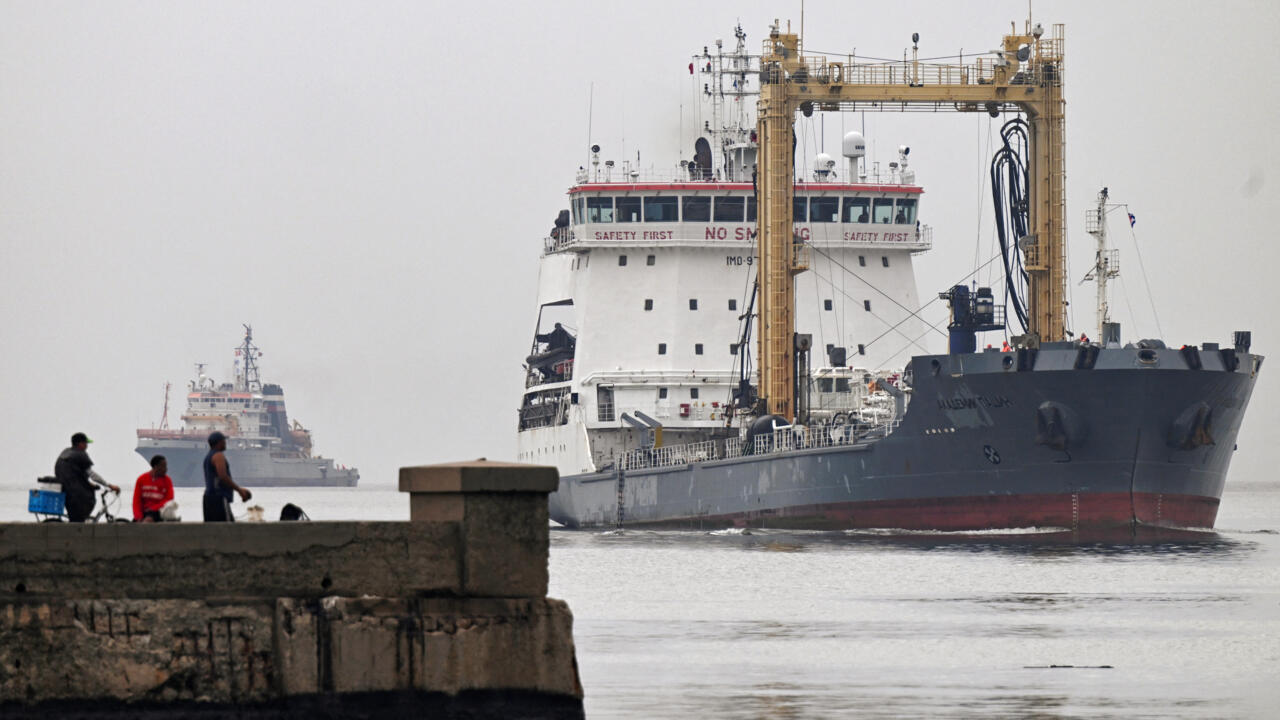EU unveils Russia sanctions targeting 'shadow' oil fleet and cyberattackers
The EU agreed a new package of sanctions on Russia on Wednesday, including blacklisting some 200 oil tankers used to circumvent curbs on Russian oil exports and targeting individuals over cyberattacks, human rights abuses and sabotage in Europe.

The EU has approved a fresh package of sanctions on Russia, clamping down on its "shadow" oil fleet as Europe threatens further punishment if Moscow does not agree to a Ukraine ceasefire.
The United States and Europe should use "devastating" sanctions to "take Russia by the throat" to make it agree to a truce, French Foreign Minister Jean-Noël Barrot said in an interview with BFM TV early on Wednesday.
The new measures against the Kremlin – the 17th round of EU sanctions since Russia's 2022 full-scale invasion of Ukraine – were in the pipeline before European leaders issued their latest ultimatum to Moscow over US-led peace efforts.
Diplomats representing the EU's 27 member states approved the package at a meeting in Brussels, according to the Polish presidency of the bloc.
Two countries still need to consult their own parliaments on the details but the package is expected to be adopted next week by the bloc's foreign ministers, sources said, speaking to Reuters on condition of anonymity.
The package – set to be formally adopted on Tuesday – includes blacklisting some 200 oil tankers used to circumvent curbs on Russian oil exports.
Companies in countries including Vietnam, Serbia and Turkey accused of helping supply goods to the Russian military are also set to face restrictions.
Dozens of Russian officials are to be added to the nearly 2,400 people and entities already facing visa bans and asset freezes.
The package also brings sanctions on Russian individuals over cyberattacks, human rights abuses and sabotage in Europe.
Officials admit that the latest round of sanctions against Moscow are relatively limited compared to previous packages as the EU finds it more difficult to agree on targets.
Further to these measures, EU leaders have threatened Russia with "massive sanctions" if it doesn't agree to a 30-day ceasefire proposal backed by the United States.
German Chancellor Friedrich Merz warned Russia on Tuesday that it would face additional European sanctions if there was no "real progress" this week towards peace in Ukraine.
Merz urged Russian President Vladimir Putin to discuss a Ukraine ceasefire and peace with President Volodymyr Zelensky in Istanbul on Thursday.
US President Donald Trump has said he could attend talks in Turkey if Putin and Zelensky sit down, but so far there has been no indication from the Kremlin that Putin will attend.
(FRANCE 24 with AFP and Reuters)